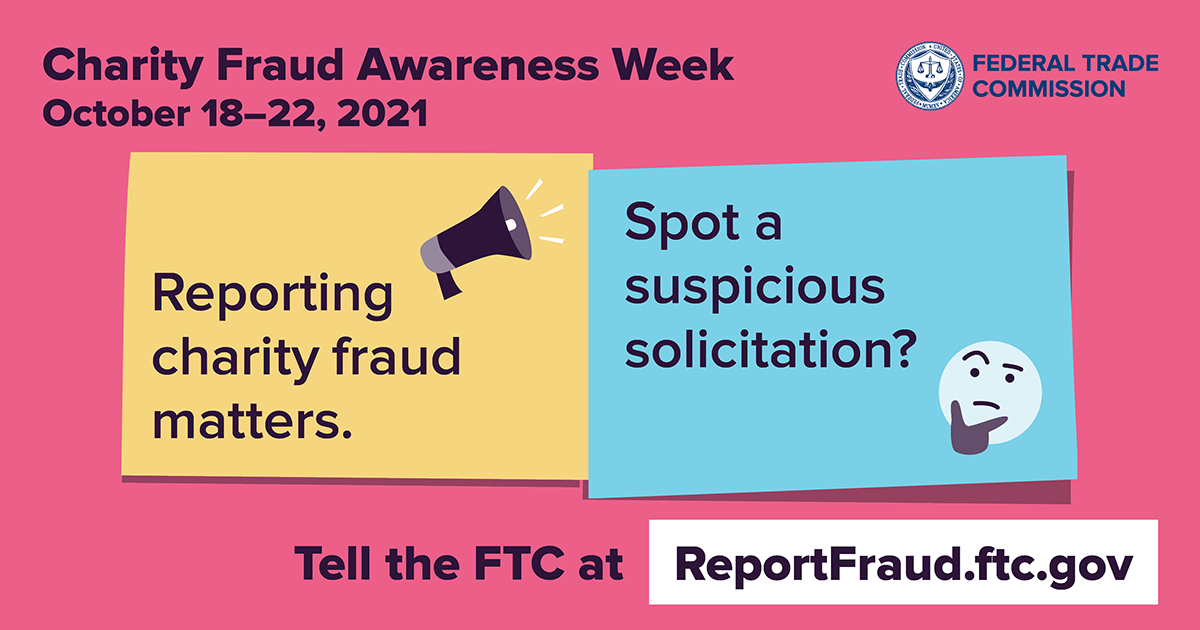Every year, charity regulators from around the word get together to raise awareness about charity fraud. The FTC joins this effort again this year because it’s so important to know how to spot a charity scam. The more you know, the less likely you’ll donate to a bogus charity. Better yet, you’ll make sure your money is helping in the way you intended.

Follow us on Facebook and on Twitter at #StopCharityFraud to get the latest advice on how to avoid charity scams. This year, we’re focusing on:
- How to report charity scams — and why it matters (Hint: go to ReportFraud.ftc.gov)
- Research charities before you donate (Hint: go to ftc.gov/charity)
- How to avoid scams when donating to charity in times of disaster (Hint: go to ftc.gov/weatheremergencies)
- Donating safely through crowdfunding or social media (Hint: go to ftc.gov/crowdfunding)
- Resources for charities to keep their computers and network secured (Hint: go to ftc.gov/cybersecurity)
You can help people make sure their donations reach real charities, not scammers. This week, join in to raise awareness in your community about charity scams:
- Share our videos on social media
- Follow us at Facebook.com/FederalTradeCommission and at Twitter.com/FTC
- Create your own social media posts using ideas from ftc.gov/charity. Don’t forget to tag @FTC and use #StopCharityFraud
- Report charity scams at ReportFraud.ftc.gov
Search Terms
Topics
Scams

In reply to Don't you guys think, in by esdanny
Yes, we list organizations that can help you research a charity,and Charity Navigator is on the list.
Charity Navigator and other organizations offer reports and ratings about how charitable organizations spend donations and how they conduct business.
In reply to I receive about 10 to 15 by zoesmom
You can research charities before you donate. Find out how at ftc.gov/charity